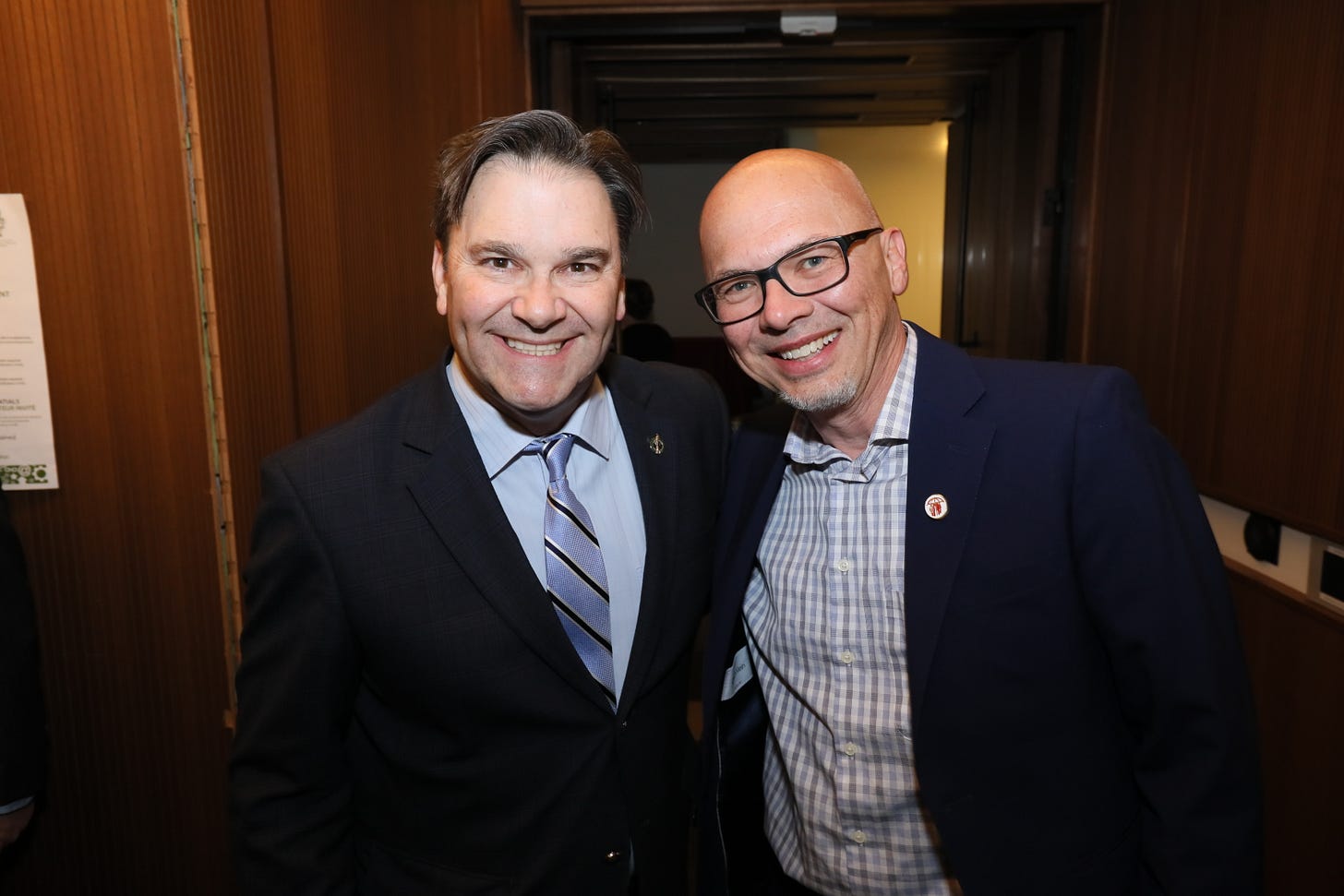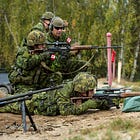Why trouble for the NDP spells trouble for democracy
Is Canada moving to a U.S.-style two-party state?
Good morning, Here is your Saturday newsletter. My thanks to the 135 paid subscribers who support PeaceQuest’s peace education impact. Please consider subscribing for $5.50 per month or $55 annually (an 18% savings).
Peace,
Steve
Parliament will look very different when newly-elected MPs return to Ottawa this month. There will be far less diversity of voices in the House of Commons with the demise of the NDP, and this is not good for our democracy.
U.S.-style two-party system
Voters sent the Liberals back to Ottawa with a minority government, same as last time. But, the country is moving toward a U.S.-style two-party system because over 90% of the seats are held by the Liberals (49.3%) and the Conservatives (41.7%). The Quebec-only Bloc Québécois will hold less than 7% of the seats, and the NDP, which saw its vote collapse, has been reduced to only 7 MPs, comprising just 2% of the seats. There is one seat held by the Greens.
NDP fades from view
NDP voters moved to the Liberals to block the Conservatives in droves, and in some ridings, moved to the Conservatives to help elect Pierre Poilievre. The result means that the NDP will hardly be noticed in Parliament because it came up short of reaching the 12-seat threshold for Official Party Status. (Full disclosure: I supported and volunteered for the NDP candidate in my riding).
Parties that lack official status lose out on financial resources provided by Parliament, get to ask fewer questions during question period and don't have guaranteed spots on standing committees.
The news gets worse for the NDP
Only 46 NDP candidates out of 342 received 10 per cent or more of the votes that would make them eligible for a partial reimbursement of paid election expenses such as travel, salaries, accessibility expenses and other costs associated with the campaign. This suggests that the party will receive possibly millions less in electoral expense refunds than in the previous two elections, where over 230 candidates met the threshold for reimbursements.
Our democracy will suffer
Before the election, the NDP’s 25-seat caucus ensured there was an important third perspective on issues of national importance for those people living outside of Quebec.
For instance, the NDP used its influence to press the Liberals to introduce the greatest expansion of public health care in a generation: a federal dental care plan and the first steps of national universal pharmacare.
Now the NDP is faced with huge financial losses and the possibility of having almost no voice in the House of Commons and the all-party committees which play a vital role in shaping legislation.
Former MP Svend Robinson told the CBC the party's devastating loss of official party status in 1993 led to a very challenging time in Parliament. "I remember jumping up and down trying to get recognized by the Speaker from the very back corner of the House. We would get a few questions every week. That was it," Robinson said. "We had no status on committees whatsoever.”
NDP hoping to make a deal with Liberals
The good news is the NDP has enough seats to support the Liberals, allowing the minority government to pass laws and avoid an early election. This could be a key bargaining chip as the party tries to negotiate an exception to the 12-seat rule for official party status.
Interim NDP Leader Don Davies, MP for Vancouver Kingsway, is in early talks with Carney’s government. Davies hopes to ensure his caucus members have the resources they need to do their jobs, which includes things like research and outreach budgets. But he adds that his "primary goal" is to ensure the 1.2 million Canadians who voted for the NDP are well represented in the House.
Let's hope the government sees the value in having more voices in the House, otherwise the Liberals may regret leaving all of the opposition power in the hands of the Conservatives and the Bloc Québécois, who combined, can seriously disrupt and jam Parliament.
Leave a comment to explain your answer.
Steve Staples joins upcoming webinar
Join me for this important event on Wednesday, May 14 at 7 PM ET via Zoom.
WEBINAR: Wed, May 14 @ 7:00 - 8:00 pm EDT
Since the 1783 Treaty of Paris, the Webster-Ashburton Treaty of 1842, and Oregon Treaty of 1846 the U.S. and Canada have had a friendly, deeply rooted cultural, economic, military and diplomatic relations . No more. Donald Trump’s threats to bring Canada to its knees in order to more completely dominate and annex Canada have backfired. Few in the United States realize how profoundly their northern neighbor has recoiled and is turning away from the United States and deepening its ties with more democratic Europe.
Featuring Steven Staples, policy analyst and founder of the Ottawa-based Rideau Institute on International Affairs. Steve has been at the forefront of the Canadian peace movement since the 1990s, and his views have been sought out by CNN, the New York Times, BBC, and major media in Canada, where he lives.
Did you miss last week’s newsletter?
Viewed 1.3k times
Thank you for everything you do for peace. If you support PeaceQuest’s peace education impact, please consider becoming a paid subscriber for $5.50 per month, or $55 annually (an 18% savings).
In peace,
Steve









Full disclosure too - I voted NDP
Same reasons you made a good case for